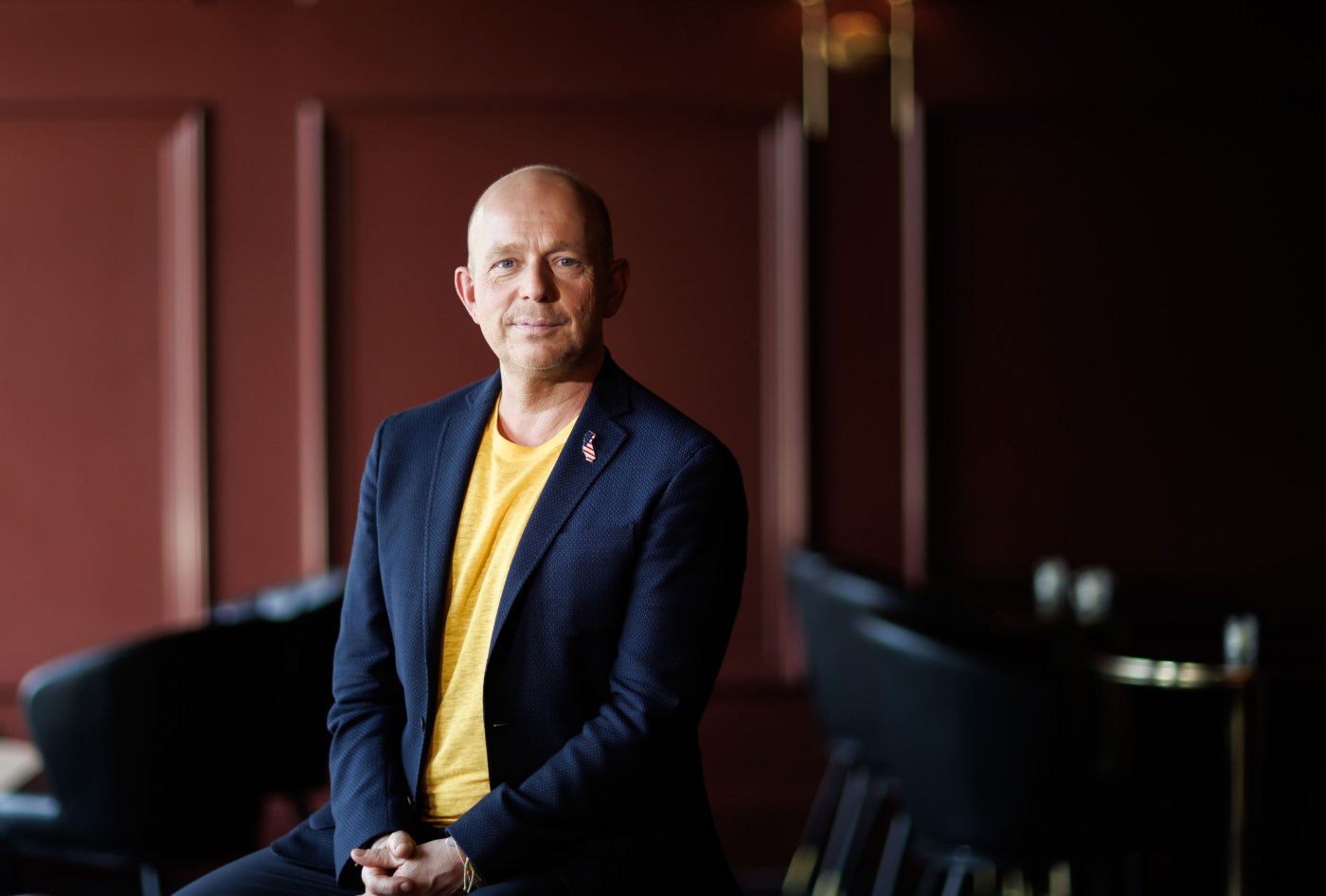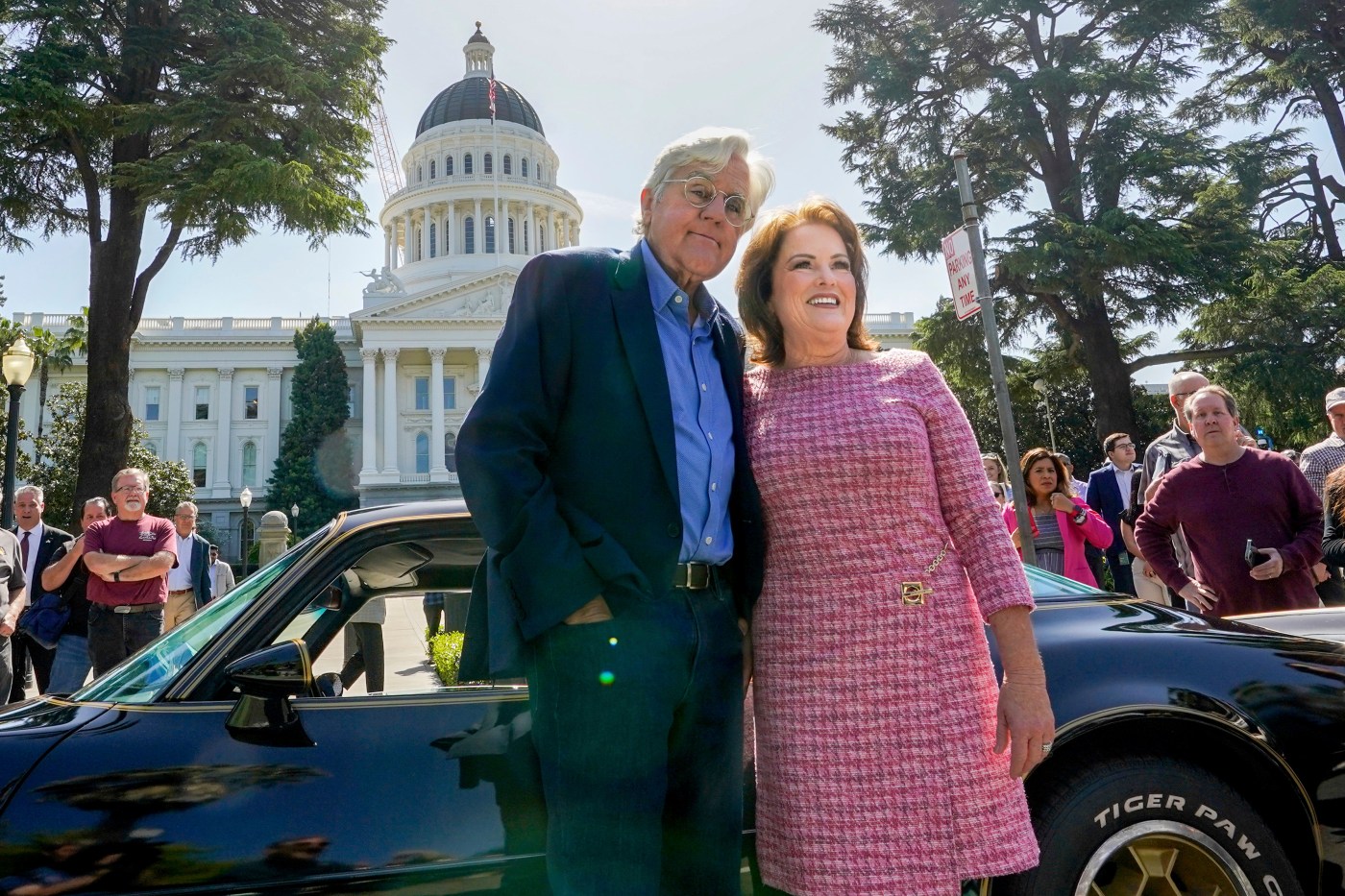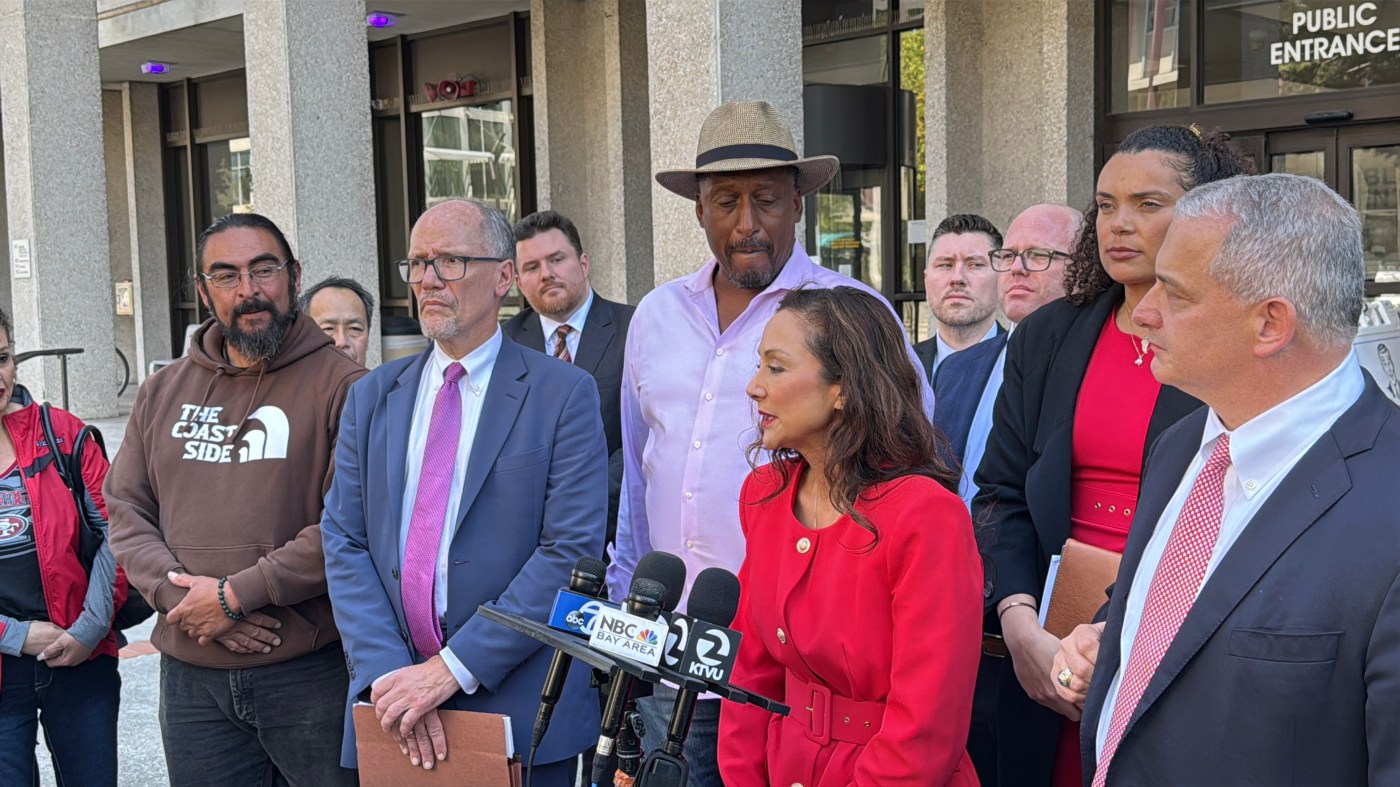At a time when California’s own governor has described the Democratic brand as “toxic,” perhaps it’s no surprise that both Democrats and Republicans are blaming the party that has been in power for decades with all the ills troubling the Golden State.
Ezra Klein, co-author of the book Abundance. (Lucas Foglia/Avid Reader Press/Simon & Schuster)
One of the highest costs of living in the country. The least affordable housing. The highest unemployment rate. The worst homelessness problem.
In two newly published books — “Abundance” by self-described liberal journalists Ezra Klein and Derek Thompson, and “Califailure: Reversing the Ruin of America’s Worst-Run State,” by former Fox News commentator Steve Hilton, who is considering a Republican run for governor — the authors chart the history of environmental regulations and bureaucracy they say has paralyzed progress in the Golden State.
“Liberals should be able to say: Vote for us and we will govern the country the way we govern California,” wrote Thompson and Klein, a New York Times reporter who grew up in Irvine and recently lived in Oakland and San Francisco. “Instead, conservatives are able to say, ‘Vote for them and they will govern the way they govern California!’”
Derek Thompson, co-author of the book Abundance, speaks on stage during the “The Future of Mental Health in the Digital Age” panel for The Atlantic Festival 2024 on Sept. 20, 2024, in Washington, DC. (Photo by Tasos Katopodis/Getty Images for The Atlantic)
It’s the kind of line President Donald Trump used to great effect in his victory over another Californian, former Vice President Kamala Harris, in winning his second presidency last fall. It’s also one that Hilton, who moved to Silicon Valley from the U.K. in 2012, is workshopping as he mulls a gubernatorial run over the next several months. (If he does, there’s a chance he might face Harris.)
“The way we do things in California is broken and it’s standing in the way of progress, human progress, economic progress, progress that is being blocked by bad bureaucratic governance,” says Hilton, 55, who served as a senior advisor to former British Prime Minister David Cameron before following his wife’s career to California, where she has worked in top communications roles at Google, Netflix and other Silicon Valley companies. “If you actually want to get things done, you’ve got to take on both the structural and the ideological barriers, and I just don’t see Democrats doing that. So my argument is that only Republicans can deliver the abundance agenda.”
The abundance agenda — the idea that there should be plenty of what society needs, including affordable housing, energy, transportation and health — is a term that has gained steam in California in recent years. It’s not only the title of Klein’s book and tops Hilton’s policy papers, but is the name of a San Francisco group of politically moderate tech entrepreneurs who founded “Abundant SF” in 2022 to help transform San Francisco’s progressive politics, housing and transit policies.
Related Articles
As the Bay Area looks to increase its housing stock, is there any room for community college students?
Marin County considering $5.2 million loan for Habitat for Humanity housing project
‘Builder’s remedy’ project could bring 1,000 homes to Pacifica
In one Bay Area city, home prices are way up and selling fast
Why stock market turmoil is bad for California home prices
Abundant SF co-founder Misha Chellam says it’s “funny timing” to be critiquing Democrats when Trump is causing chaos in Washington, D.C., with seesawing tariffs, dismantling federal agencies and firing federal workers from key institutions.
“But these things are connected,” Chellam says. “It’s because the Democrats have been inattentive to being an effective government that is potentially one of the reasons why there was an opening for someone like Trump to come into office.”
That same ineffective government, he says, has also given rise to the growing abundance movement of moderate Democrats in Sacramento, where state Sen. Scott Wiener of San Francisco is leading legislation to make it easier to build homes near transit and make changes to the California Environmental Quality Act that he says has been used as a “tool of obstruction” in development projects.
“If Dems are going to re-seize the mantle of proactive, effective leadership in this country,” Wiener posted on social media in March, “this is the direction we need. We must embrace abundance.”
Thad Kousser, UC San Diego political science professor, says Democrats are not entirely to blame for the housing shortage especially.
Cities and towns across the state, whether largely Republican or Democrat, have rejected statewide efforts to increase the housing stock. Just 14 of the Bay Area’s 109 cities met a state-imposed 2023 deadline to submit plans to comply with ambitious homebuilding targets.
“The commitment to the California dream of a single family home, that is what has defined California for over a century,” Kousser says. “It remains the aspiration of every economic and demographic group in California. The voters still wanted that California dream of their single family home and their well-watered lawn, and their legislators have continued to represent them.”
And perhaps that is part of the reason why a recent Rand research report found that California is the most expensive state in the country in which to build multifamily housing in every cost category. Compared to Texas, the average housing project in California takes twice as long to build and costs more than twice as much, the study’s author Jason Ward says. Municipal impact and development fees, which are levied on each apartment unit, average about $1,000 per unit in Texas, while in California, they cost an average of $29,000 per unit. In California, local communities often add fees for schools, roads and other services to make up for revenue they can’t raise through property taxes because of Proposition 13 limits.
“There are jurisdictions that don’t really want to see a lot of new housing,” Ward says. “In that case, leaning heavily into these fees can be a way to just sort of deter housing.”
Hilton lives in the wealthy enclave of Atherton with his wife and two sons. Here, mansion-owners tucked behind high walls are opposing neighboring multifamily housing projects. Hilton left Fox last month when his contract ran out, he says. He was an outspoken Trump supporter there, but now plans to focus on the future of California and his book tour, which will take him to a Silicon Valley Republican Party event at a Saratoga estate Sunday afternoon.
“People are moving to red states because it’s easier, more affordable, life is better and to me, that’s an absolute crime,” Hilton said during an interview Thursday at a Menlo Park restaurant. “We should be the best place to live in America. To me, the answers to that don’t lie in what happens with the stock market. It lies in what we do to make it easier to build the homes that we need, to improve the education that kids get in schools, to make it easier to start and run and grow a business, so we create jobs and to lower taxes so people keep more of what they make.”
In an interview with Klein on his March 25 podcast, Gov. Gavin Newsom — who is often touted as a 2028 Democratic candidate for president — also blamed some of the state’s housing woes on NIMBY Republicans. Still, he acknowledges that Klein’s book was “a real shot against liberalism, in many respects, against the world we created.”
Klein says that while liberalism is good at subsidizing things that people need, it has proven to be bad at building things — and that has had lasting consequences in California and beyond.
“If you can show liberal democracy can deliver,” Klein told Newsom, “you will pull people out of wanting these strong men who say they are goin to burn the whole thing down.”





